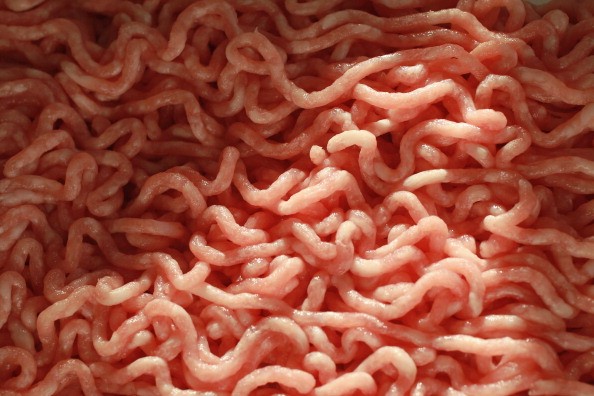By Asma Majid, | August 29, 2016

Antibiotic Resistant Ground Meat
As advancement in cellular agriculture brings genetically-engineered foods like laboratory-made meat, milk, and eggs into the market, there is a call for a need to properly regulate these products to ensure the safety of consumers.
The latest breakthrough in genetic engineering comes in the form of engineered foodstuffs that are created without any animal products.
Like Us on Facebook
As fantastic as it may sound, we might no longer have to ask if the chicken came first or the egg. Not only have scientists produced egg whites with the help of yeast; milk, as well as meat proteins, have been artificially created in the laboratory.
While the first lab-made hamburger was rolled out in 2013, many companies in the US are eyeing 2017 to launch their range of dairy products that are 'cow-free.' Other businesses that deal in meat products predict that the market would start accepting lab-made meat in about five years.
Given the current laws, US food regulatory authorities require companies manufacturing artificial food stuff or additives such as enzymes or proteins to opt for extensive testing of all products before they are approved for the market. Thus, any new products like meats and milk would have to be tested for the presence of disease-causing pathogens and toxic substances before they get approval.
Even after undergoing extensive tests, there is no guarantee that these products would ever become a part of the mainstream food industry.
Since US food authorities define milk as a secretion from cows and define meat as an animal product, the lab-grown substitutes of these foods are unlikely to be allowed to refer to themselves by the traditional terms like "meat," "eggs," "milk," etc, unless, of course, the US Food and Drug Administration (FDA) revises those regulations.
While animal rights groups and vegetarian organizations would like to push for these foods to be made mainstream in the name of preventing cruelty to animals, others have cited the ethical paradigms of the venture and claim it to be an act of unnecessarily messing with nature.
As the moment, it seems unlikely that the United States Department of Agriculture or the FDA would relax any of its stringent policies to accommodate lab-made food with mounting pressure to keep the ethics of biotechnology and public health in view.
-
Use of Coronavirus Pandemic Drones Raises Privacy Concerns: Drones Spread Fear, Local Officials Say

-
Coronavirus Hampers The Delivery Of Lockheed Martin F-35 Stealth Fighters For 2020

-
Instagram Speeds Up Plans to Add Account Memorialization Feature Due to COVID-19 Deaths

-
NASA: Perseverance Plans to Bring 'Mars Rock' to Earth in 2031

-
600 Dead And 3,000 In The Hospital as Iranians Believed Drinking High-Concentrations of Alcohol Can Cure The Coronavirus

-
600 Dead And 3,000 In The Hospital as Iranians Believed Drinking High-Concentrations of Alcohol Can Cure The Coronavirus

-
COVID-19: Doctors, Nurses Use Virtual Reality to Learn New Skills in Treating Coronavirus Patients










